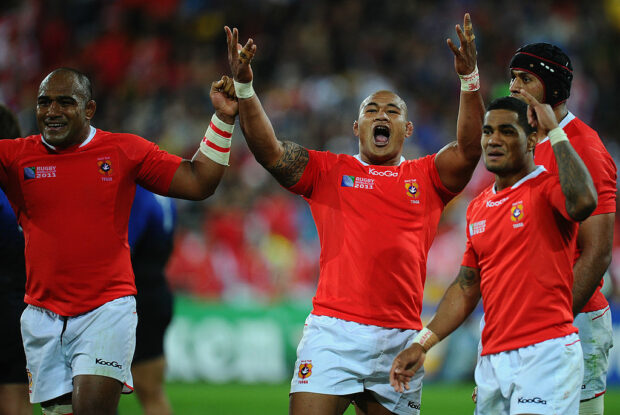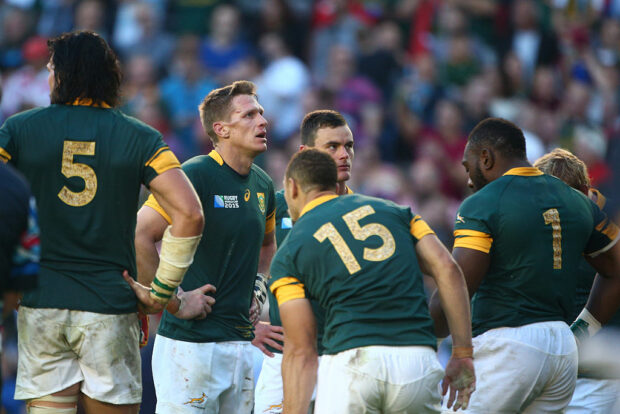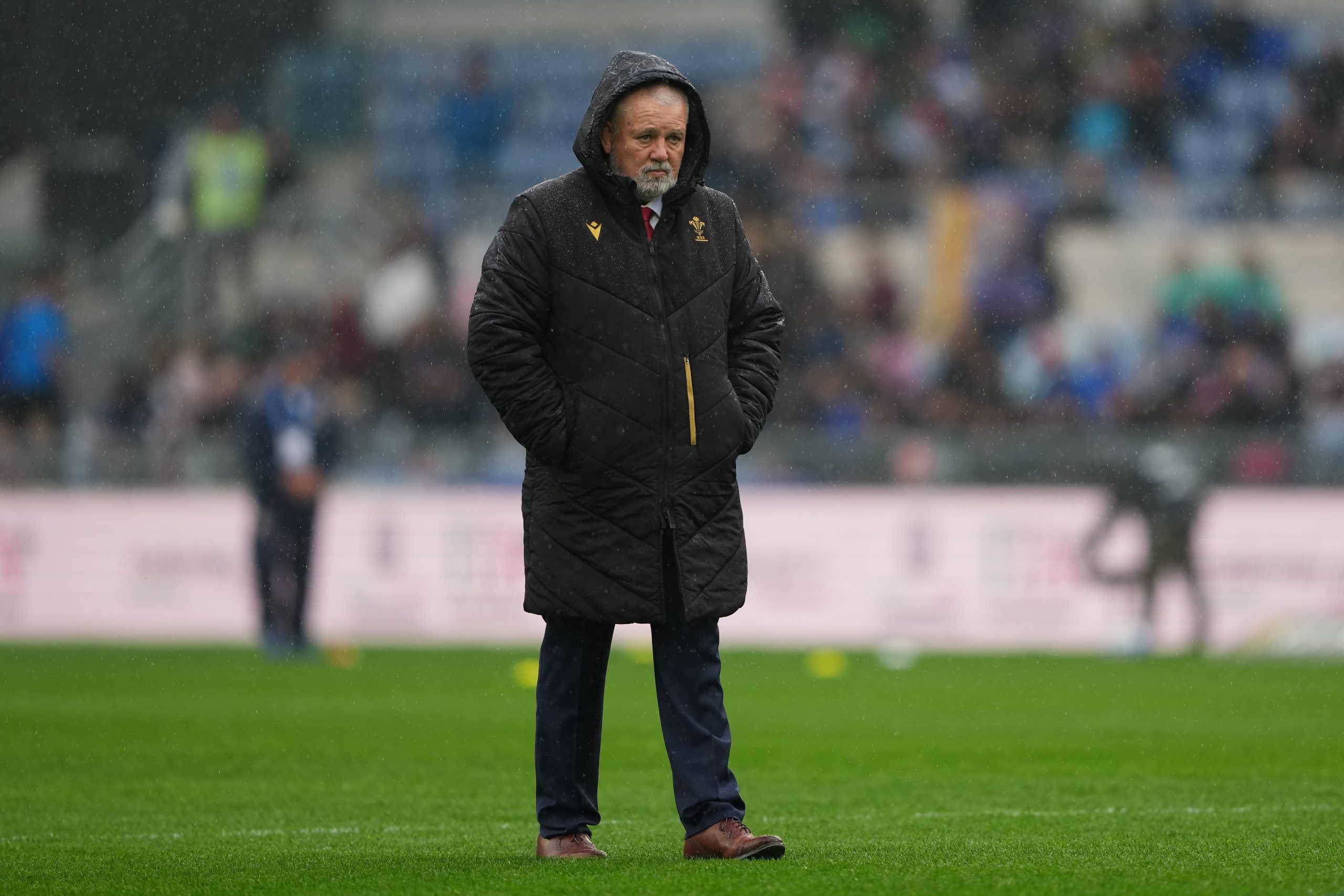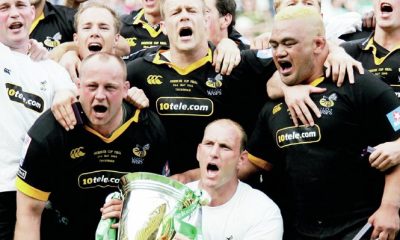
Brendan Gallagher recalls rugby’s biggest ever shocks, at club and internaitonal level, and ranks each for the magnitude of the upset.
20 – Quillan 11 Lezignan 8 (Toulouse, 1929)
Not so much a shock French Cup final win for Quillan, more a seismic wake-up call for rugby. Let me explain: In the mid-20s hat-maker and entrepreneur Jean Bourrel brazenly flouted the amateur laws and bought up the small village team of US Quillan and packed it with imported stars from giants like Perpignan and Beziers. They were the most unpopular side in France, and after losing the 1928 French Cup final to Pau, landed the trophy in this game. Twelve months later they lost to Agen in a third final but within a couple of years they had been drummed out of the game, a village team once again.
19 – New Zealand 10 England 16 (Eden Park, 1973)
You never knew quite what you were going to get from England in the ‘70s but nobody anticipated this historic win. Perhaps we should have. England might have lost all three provincial matches but they were close and they had also scraped a win against Fiji en route. They were battle-hardened while New Zealand hadn’t played for seven months. England were comfortable winners with tries for Peter Squires, Tony Neary and Stack Stevens.
18 – Ireland 17 New Zealand 14 (WRWC, Marcoussis, 2014)
Going into the 2014 Women’s World Cup in France, New Zealand had won four titles in a row and were seemingly unbeatable. Everybody was expecting a showdown with England in the final but then in an extraordinary Pool game Ireland claimed a sensational win. Skipper and full-back Nimah Briggs was outstanding but every Irish woman produced career-best performances. Ireland couldn’t top their heroics in the semi-final against England but this win will always live in the memory.
17 – Fiji 25 Lions 21 (Suva, 1977)
OK the Lions were on the way back from a horrible wet and muddy tour of New Zealand and had spent barely 72 hours chilling out – largely on the beach – but this was still a pretty special win. The tourists, who could easily have beaten New Zealand in the series, were match hardened and looking for a consoling win but Fiji had just thrashed Tonga in a three Test series and were ready for the challenge. Captained by Harlequins fly-half Pio Bosco Tikoisuva they outscored the Lions five tries to three.
16 – Coventry 19 Newcastle 18 (Nat One, Coundon Road, 1997)
It was the first year of professionalism and an all-star mega-bucks Newcastle team boasting 13 internationals were causing mayhem in the old Div One. Proud Cov, still essentially amateur but with some fine players and a young tyro in MOM Danny Grewcock, suddenly got the wind in their sails in front of a capacity 8,000 crowd at Coundon Road. John Bentley had got sent off just before half-time for punching Andy Smallwood and the Cov wing had the great pleasure of scoring Cov’s winning try. Newcastle were not happy, indeed I watched them smash their changing room door down in frustration.
15 – Llanelli 9 All Blacks 3 (Stradey Park 1972)
The first of the big shock wins inflicted over the All Blacks in the 70s so there was much novelty value to add to the equation. Llanelli, with Carwyn James as coach, were always going to give the All Blacks a hell of a game but I’m not sure even those with 20-20 retrospective vision forecast a win. The ABs were coming off a big 39-12 victory over Western Counties and with the core of that team. The Scarlets’ victory came via a converted Roy Bergiers try and an Andy Hill penalty.
14 – Italy 32 Scotland 20 (Rome, 2000)
This was a major shock to celebrate Italy’s debut as a Six Nations team. Scotland has won the previous Five Nations championship in 1999 in stirring fashion with a sensational victory over France in Paris and were a fine side… but at an emotional Flaminio Stadium they froze and encountered a red-hot Diego Dominguez. The diminutive fly-half kicked 29 points including three dropped goals.
13 – Wales 13 Western Samoa 16 (World Cup, Cardiff 1991)
A massive shock at the time but although Western Samoa may have been short of Test experience they were packed full of class players. Included in their line-up were future All Blacks Frank Bunce and Stephen Bachop, world-class centre To’o Vaega, wing Brian Lima while Pat Lam had played Sevens for New Zealand and Apollo Perelini became a major Rugby League player. Against Wales they contested the issue from the off and their big hits accounted for Phil May and Richie Collins. A disputed try by Vaega – did Robert Jones get the touch first? – put the Samoans in the ascendency at 13-3 early in the second half and although Wales rallied Western Samoa held on.
12 – Harlequins 6 Wilmslow 17 (Twickenham 1972)
Quins had qualified impressively for the QFs of the RFU Cup and were lined up against Wilmslow, a club which their Second XV normally played. Quins moved the game to Twickenham which inspired the well-heeled Cheshire club, with Steve Smith to the fore. Members of the Wilmslow committee travelled by helicopter which they parked at the Stoop and, after enjoying Quins’ post-match hospitality, stepped out of the bar into their helicopter, circling the ground on a lap of honour. “We were out-Harlequinned in every department including transport,” recalls Bob Hiller.
11 – Canada 18 France 16 (Twin Elms Park 1994)
That fine Canada side of the early 90s never really got full rewarded for their efforts, except in this famous win over a full-strength France side that moved on from Canada to inflict a 2-0 series defeat on the All Blacks. Gareth Rees was at his game-controlling best at fly-half and also slotted six penalties. France had Phiippe Sella sent off after a mass brawl – France spent the next ten years having that dismissal rescinded – but Canada also lost hooker Mark Cardinal to a red card.
10 – France 14 Tonga 19 (Wellington 2011)
With much unrest behind the scenes, France veered from pathetic to brilliant at RWC2011 but that should not diminish the brilliance of this Tongan victory. The French went into the game thinking they needed to win to reach the quarter-finals so were at full pelt although as it happened they scraped through anyway. The Tongan forwards bossed affairs and Kurt Morath kicked 14 points, only a last minute try from Vincent Clerc gave the impression of a proper contest.

9 – South Africa 12 South American Jaguars 21 (Bloemfontein, 1982)
The Jaguars were a mish-mash from Argentina, Uruguay, Chile and Paraguay but for the Tests they were Argentina in all but name. The first Test resulted in a 50-18 thumping in Pretoria but a week later in Bloemfontein skipper Hugo Porta produced a definitive performance at fly-half with four penalties, a try, conversion and dropped goal to see his side home with something to spare to the stunned disbelief of the 21,000 crowd. And lest you think it was an underpowered Boks team, among those doing duty that day were Ray Mordt, Danie Gerber, Carel du Plessis, Naas Botha, Rob Louw and skipper-on-the-day Wynand Classen.
8 – Australia 11 Tonga 16 (Brisbane, 1973)
A sensational away win for Tonga in only their second Test against an IRB Board nation. Disgracefully their next full Test against one of the big eight didn’t come until 1986 when they played Wales. Tonga had lost 30-12 in their bigtime debut against Australia the previous week in Sydney, but the Islanders found the sunshine of Brisbane much more congenial and piled into Australia, led by full-back Valita Ma’ake. The Tongans’ athletic running game saw them cross for four tries.
7 – Munster 12 All Blacks 0 (Thomond Park, 1978)
So much has been written about this game, how to separate fact from fiction? Munster were a decent side packed with quality players, even if they had shipped 40 points in a disastrous warm-up against London a couple of weeks earlier. Note though that they had bothered to stage a warm-up. New Zealand were at almost full strength even though it was just four days ahead of the Test against Ireland. Munster were remorseless and brave from start to finish, New Zealand couldn’t match fire with fire. Were they fatigued from a late night at Bunratty Castle the previous evening? In the play yes, in reality? Who knows?
6 – North West Counties 16 All Blacks 14 (Workington, 1972)
For me this is the biggest ever shock domestic win over the All Blacks, it just hasn’t had a play written about it. Yet! Counties had three biggish names in a young Fran Cotton, Tony Neary and Peter Dixon and one star of the future in Steve Smith but otherwise they were a cobbled together team of club stalwarts who had missed out on the big time. Not however on this occasion. Stuart Maxwell, a transplanted Lancastrian who played for Richmond in London, crossed for two tries, Dick Cowman kicked a conversion and penalty and powerful centre Chris Wardlow added a dropped goal as the ABs completely failed to recognise the danger.
5 – Waterloo 9 Bath 8 (Pilkington Cup, Blundellsands, 1992)
Waterloo were a decent Second Division side but come on, mighty Bath had won the trophy seven times in the previous ten seasons. Bath had freed up Stuart Barnes and Andy Robinson to play for the Barbarians at Twickenham but otherwise were at full strength. Waterloo took them on up front where old campaigners Nick Allott and Paul Hackett enjoyed the games of their lives but what Bath were unprepared for was the class of young tyros Paul Grayson and Austin Healey. Future Ireland scrum-half Christian Saverimutto was another to go well.
4 – Wasps 24 Pertemps Bees 28 (Powergen Cup, High Wycombe 2004)
Before this game Bees were 250-1 to win the game and 750-1 to win the Cup, the latter being the same odds of Elvis being found alive. Pertemps Bees (basically Birmingham & Solihull) might have been in the old National One but in truth had no right in entertaining any thoughts of a win over Warren Gatland’s Wasps who were to claim the Heineken Cup three months later. Wasps rested five players including Lawrence Dallaglio but still included nine internationals in their starting team which was captained by Simon Shaw. Bees fly-half Mark Woodrow, an electrician from Bristol, was in prime kicking form landing six penalties while Nick Baxter – a former England Sevens wing – and Aaron Takarangi scored tries for the visitors. Wasps did score four tries but had no front-line goal-kicker which cost them dear.
3 – Cardiff 14 St Peter’s 16 (Cardiff, 1993)
A wonderful fifth round SWALEC Welsh Cup win for St Peter’s, a suburb of Cardiff against the biggest club in Wales, with Gareth Snook their try scoring hero. This game also produced a classic quote from Cardiff’s shell shocked Aussie coach Alec Evans as he attempted to put defeat in perspective in the changing room. “Guys. What you’ve got to remember is that there are a billion Chinese who don’t give a **** about Cardiff losing a rugby match”. The rest of Wales, though, was less understanding. Cardiff had rested a good number of first choice players but they still had ten internationals on the pitch. They were off the pace against a side who were even more fired up when they realised Cardiff had arranged for a third column for their points total on the Cardiff Arms Park scoreboard!

2 – Japan 34 South Africa 32 (Brighton 2015)
An incredible win at the death for the Cherry Blossoms with that Karne Hesketh try which lit up RWC2015.
Against South Africa, Japan had to survive in the set piece and in the arm wrestles. After that courage, fitness and skill came into play, but nothing could happen without near parity up front. At scrum-time they packed down beautifully low and won all seven of their completed scrums without stress. The starting front row of Kensuke Hatakayama, warrior hooker Shota Horie and Masataka Mikami all had the games of their lives.
It was the same story in the line-outs where a return of 12 wins – mostly good quality – out of 13 Japan throw-ins tells the story.
Ultra-efficient and quick-witted they retained possession at 81 of the 83 rucks they formed and four of the five driving mauls. The Boks didn’t know if they were coming or going.
1 – Old Reigatians 12 Saracens 10 (John Player Cup, 1987)
Lightning isn’t meant to strike twice but in 1987 that’s exactly what happened. The Old Reigatians – a maverick but defiantly amateur beer-swilling Old Boys team previously famed mainly for their spectacularly un-PC collage of Penthouse centre folds on their clubhouse ceiling – had already beaten Exeter and now they took on and beat another well-established senior club in Saracens.
They were an eclectic bunch of club stalwarts and late developers but also those who could have been playing at a much higher level. The latter would certainly include fly-half Nick Brown who had recently emigrated to Norway but returned for the matches and Martyn ‘Bash’ Bates, an outstanding former No.8, who started terrifying opposition wings when a back injury dictated he move into the backs. Both Brown and Bates had lit up the Rosslyn Park Schoolboy Sevens in the mid-70s winning the tournament with Reigate GS in 1976.
It could have been a bigger win if one of the Old Boys’ better known players Steve Pilgrim – soon to join Wasps and to play for England B – hadn’t missed four relatively simple shots at goal. Happily full-back Andy Whitely – a schoolmaster at Reigate GS – took over kicking and landed the four penalties that saw the Old Boys home.
Powerful wing Lawrence Holmes scored a try for Sarries with Nick Holmes kicking a penalty and a conversion but the best side prevailed. When the dust had settled some of the ORs squad had to cancel a planned skiing holiday which they had organised for the weekend of the fifth round, never thinking they would be playing at Gloucester that day.
The ORs gave a decent account of themselves at Kingsholm and earned a huge ovation from the Shed but the dream was over, they could return to rugby obscurity and their rearranged skiing trip.
The latest edition of @TheRugbyPaper is coming your way this weekend…
— The Rugby Paper (@TheRugbyPaper) April 16, 2020
3️⃣ months for £15.99
6️⃣ months for £29.99
1️⃣2️⃣ months for £49.99
Your essential Sunday read #TRP Get your copy: https://t.co/AJQy8FqV8u pic.twitter.com/K7hSvR0xcx





























You must be logged in to post a comment Login